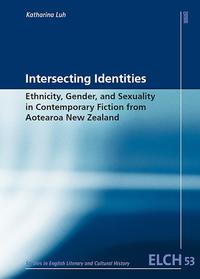
Over the past 40 years, New Zealand has been transformed from an introverted, monocultural, and cringingly conformist society to a Pacific nation characterised by increasing diversity. While various social categories intertwine to shape the lived experiences of local women and men, issues of identitary entanglement have also played out powerfully in New Zealand narrative, contributing in crucial ways to the creative (re)negotiation of intersecting identities. Starting out from the ethnic ‘strand’ of New Zealand identities, the present study weaves local ideas of masculinity, femininity, and sexuality into the ‘thesis cloth’. Embedding these identitary strands into narrative theory and intersectional theorising – which, as an explicit research perspective has only recently ‘travelled’ to New Zealand academic circles – it provides an intersectional analysis of fiction from Aotearoa written and published since the early 1980s. Working with the (yet) slender thread of ‘intersecting’ intersectionality and New Zealand studies, the thesis thus explicates three central identitary strands of ethnicity, gender, and sexuality in separation, examining them in intracategorical terms, before intertwining them intercategorically in the context of two ‘intersecting movements’: ‘the’ Maori Renaissance and various contingent expressions of feminism(s). Using narratology and a firmly contextualised study of literature, culture, and society to explore the intersectional potential of perspective structures, narrative authority, and unreliable narration, it references local concepts of entanglement like ‘weaving’, ‘spiralling’, and ‘the rope of (wo)man’ and implements its key findings into historically sensitive and culturally adequate interpretations of themes, forms, and functions. Further, the study refers to some of the ‘threads’ it has ‘left dangling’ – pointing out potential transfers of intersectional research to other genres and media in Aotearoa New Zealand.